Highlights of the 5th International Congress on “China and the Islamic World: Cultural Encounters and Mutual Learning (3)
The 5th International Congress on “China and the Islamic World: Cultural Encounters and Mutual Learning” was held from June 26 to June 27, 2024 in Beijing. The congress comprises four sessions: Session 1 “Historical Contacts between China and the Muslim World”, Session 2 “Encounters and Mutual Learning in Arts and Sciences”, Session 3 “Encounters in Literature, Traditions and Philosophy”, and Session 4 “China and the Muslim World in the Contemporary Global System”.
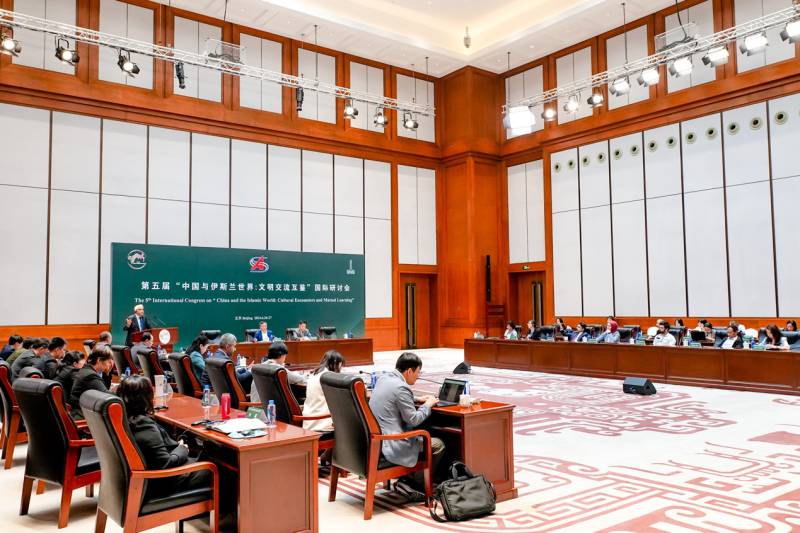
Participants at the congress
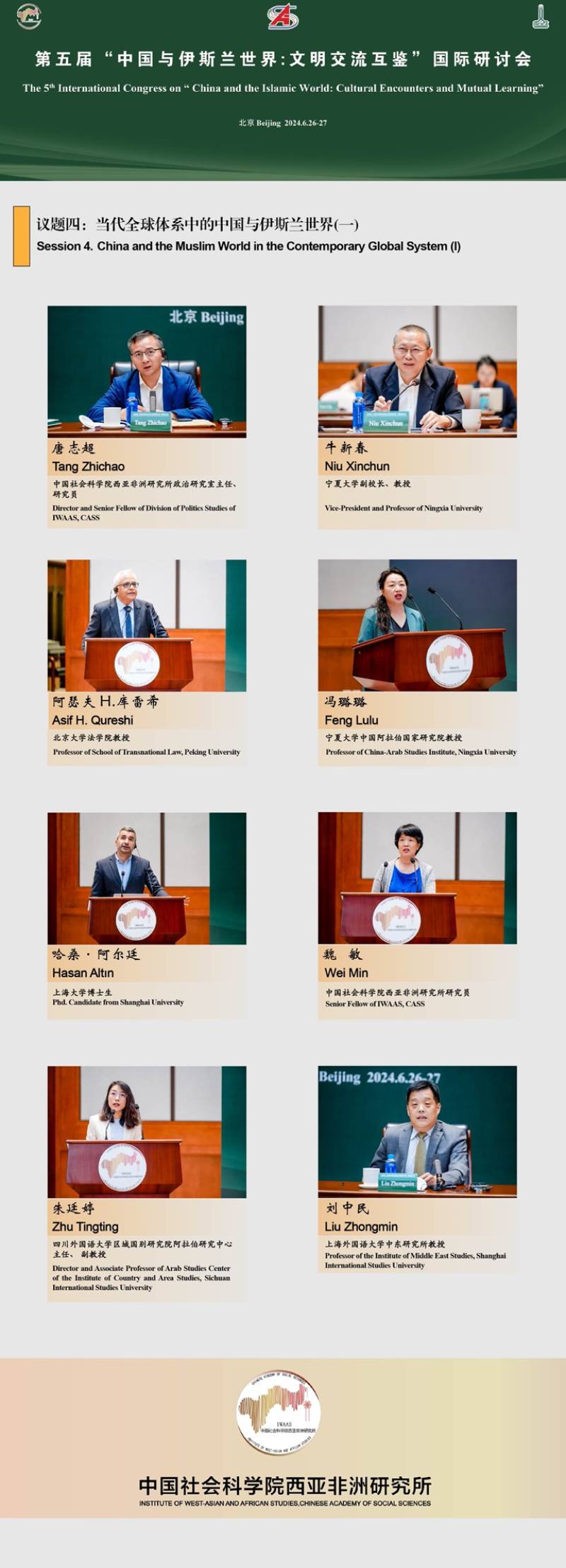
Session 4 (Part I) speakers
Session Four “China and the Muslim World in the Contemporary Global System” (Part I) was moderated by Tang Zhichao, Director and Senior Fellow of Division of Politics Studies of IWAAS, with six speakers delivering speeches. Professor Niu Xinchun, Vice-President of Ningxia University made a speech titled “The Current Relationships of China and The Arab Nations”. He presented his analysis on how the economic relations between China and Arab countries shifted from one-way investment to bilateral investment, and stated the political and economic reasons behind this strategic transition. Professor Asif H. Qureshi from the School of Transnational Law, Beijing University focused his speech on “China and Global Governance”. He explained how countries formulate rules and frameworks of diplomatic relations in accordance with the International laws and regulations, and noted that China's Foreign Relations Law reflected the core tenets of China's global governance. Professor Feng Lulu from China-Arab Studies Institute, Ningxia University, made a speech titled “The Collision of Diverse Civilizations on the Silk Road”. She illustrated the historical encounters and relations between Chinese and Islamic civilizations along the Silk Road since ancient times, and said that the shared values of the two major civilizations has built a solid foundation for future cooperation and friendly exchanges.
Hasan Altın, Phd. Candidate from Shanghai University delivered a speech titled “Silk Roads of Knowledge: Interactions through Travelers, Trade, and Institutional Learning between China and the Muslim World”, emphasizing the importance of cross-cultural exchange through trade and travel. Wei Min, Senior Fellow of IWAAS made a speech titled “Paths and Modalities of Climate Governance Cooperation between China and Islamic Countries”, outlining the paths and modalities of climate governance cooperation between China and Islamic countries, and its significant contribution to employment. Zhu Tingting, Director and Associate Professor of Arab Studies Center of the Institute of Country and Area Studies, Sichuan International Studies University, focused her speech on “New Energy Cooperation Between China and Arab Countries”, underlining the achievements and opportunities brought by renewable energy cooperation between China and Arab Countries in terms of strategic vision and complementary technologies.
Professor Liu Zhongmin from the Institute of Middle East Studies, Shanghai International Studies University, commented that the exchange between Chinese and Islamic civilizations is characterized by sustainability, inclusiveness, mutual benefit and peacefulness. He encouraged the two sides to attach more importance to differences and carry out more Silk Road Studies in the future.
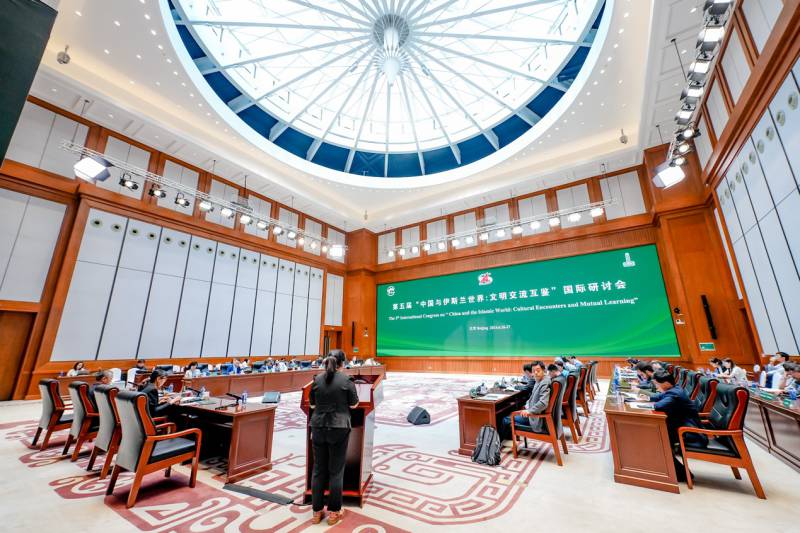
Participants at the congress

Session 4 (Part II) speakers
Session 4 (Part II) discussion was moderated by An Chunying, Deputy Editor-in-chief and Senior Editor of West Asia and Africa, IWAAS with seven speakers delivering speeches. Professor Zan Tao from the Department of History, Peking University made a speech titled “The Chinese Muslim Near East Mission and Turkey in the Context of the War of Resistance against Japan”. He outlined the great contribution made by Chinese Muslims in promoting the relations between China and Turkey during the War of Resistance Against Japan, and emphasized on their role of bringing closer of Muslim societies in China and the Middle East. Professor Liu Zhongmin from the Institute of Middle East Studies, Shanghai International Studies University made a speech titled “The Idea and Practice of China's Participation in Middle East Security Governance”. He analyzed the security situation in the Middle East and China's policy on security issues in the region.
In his speech “China's Mediation Diplomacy in the Middle East”, Sun Degang, Director and Senior Fellow of Center for Middle East Studies, Fudan University, analyzed China’s role as a peace mediator. He said, China is now making efforts to enhance its soft power and strengthen the strategic partnership with the Islamic world through diplomatic mediation. Professor Liu Xinlu, Director of School of Arab Studies, Beijing Foreign Studies University made a speech titled “China-Arab Common Value Construction and Cultural Discounts in International Communication”. He outlined the reasons that Arab scholars called for reshaping of international order, and noted that the phenomenon of Cultural Discounts in International communication may be caused by differences in cultural understating and acknowledgement between China and the Arab world.
Selçuk Aydın, Assistant Professor of Boğazİçİ University, Turkey, made a speech titled “Three Types of World Politics: Comparing Coercive, Economic and Diplomatic Initiatives”. He analyzed the political development models of Turkey and China and their significant roles in reshaping the global order. Professor Hou Yuxiang from the School of Middle East Studies, Beijing International Studies University, delivered a speech titled “A Study of Muslim Social Communities in Ancient Chinese Cities in The Travels of Ibn Battuta”. He elaborated on people-to-people exchanges and cultural interactions between China and the Arab world, by studying the main works of Moroccan traveler Ibn Battuta. Jiang Yingmei, Associate Researcher of IWAAS, made a speech titled “Financial Cooperation Between China and the Gulf States”. She examined the new trend of financial industry in Arab countries, and highlighted the importance and new opportunities of China-Arab financial cooperation under the framework of the Belt and Road initiative (BRI). Professor Niu Xinchun commented on this session. He said, the introduction and evolution of Chinese civilization in the Middle East is a crucial part in the study of China-Arab inter-civilization dialogue, and that more in-depth research should be done in this area.
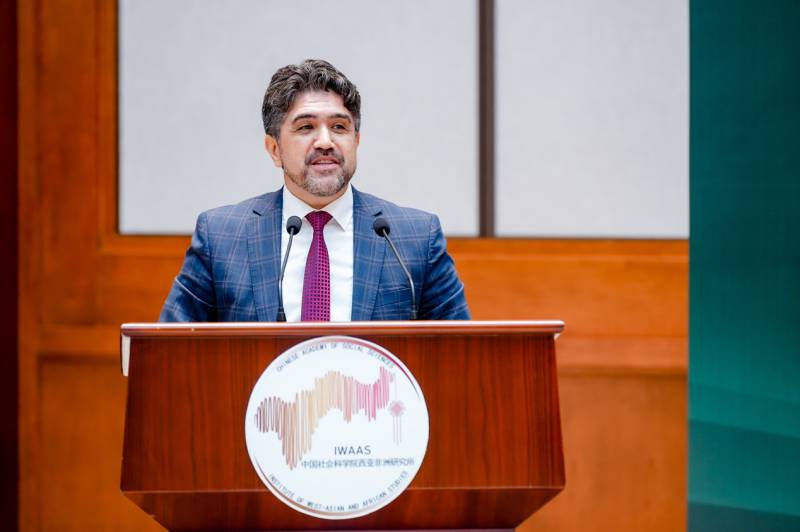
Sadık Ünay is making concluding speech
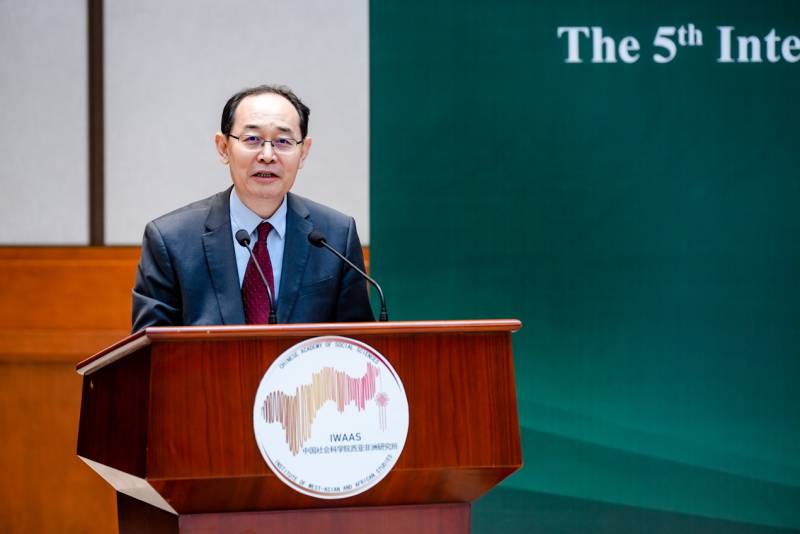
Wang Lincong is making concluding speech
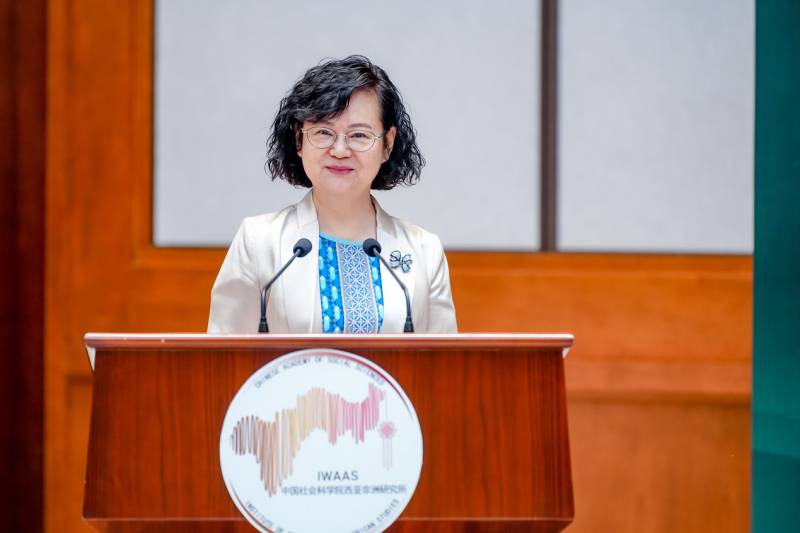
Wang Xiaoming is moderating the closing ceremony
The closing ceremony was moderated by Professor Wang Xiaoming, Deputy Director-General of IWAAS, and addressed by Wang Lincong, Deputy Director-General and Senior Fellow of IWAAS, and Sadık Ünay, academic consultant of IRCICA. Professor Sadık Ünay reviewed the previous International Congress on China and the Islamic World, and expressed heartfelt thanks to all participants at the congress. He look forward to deepening cooperation with China and to facilitating effective congresses in the future.
Wang Lincong concluded that today’s congress is high-level, academic, open and fruitful in nature. He said that we have clarified the preconditions, foundations and goals of mutual learning among civilizations, and discussed the evolution and exchange of human civilization. We reached a consensus that mutual learning among civilizations is an effective way to solve global issues, and found out the way to develop modern Chinese and Islamic civilizations through mutual learning among civilizations in the future. He added that the IWAAS will continue to collaborate with IRCICA to jointly promote mutual learning among civilizations in pursuit of prosperity in civilizations.


